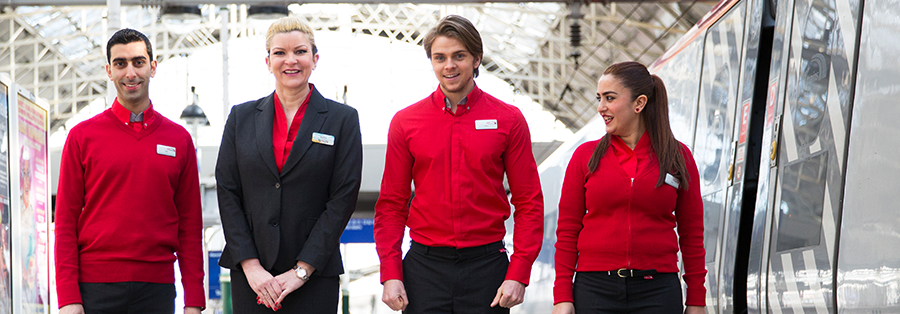Discover how Virgin Trains improved their conversational Super-Skills™ and broke down the barriers to organisational dialogue.

Changing the conversations that occur in workplaces requires a change in both mindset and behaviour. This can be seen as challenging or threatening the current culture. But it’s a crucial exercise for organisations to assess their current conversational habits before designing an approach to drive change.
Virgin Trains was borne out of the railways, which have traditionally had an engineering-led culture of problem-solving and pragmatism. Rules, regulations and the hierarchical structure have guided a lot of communication, so conversations were often characterised by command and control.
Managers often assumed that employees were ‘in the know’, which led to things often being left unsaid. Leaders weren’t always open with bad news and face-to-face conversations were often avoided. Any intervention had to take into account the macro issues and challenges that affected Virgin Trains, exploring the barriers that prevented improving conversations.
Ready to see how Virgin Trains designed the right programme for its leaders?
Part two: designing a programme to improve conversational Super-Skills™
A conversational leadership programme was designed, in collaboration with The Right Conversation, to improve the quality of organisational dialogue. It focused on the 5 Super-Skills™ that underpin all conversations:
These Super-Skills™ form the bedrock of all successful and meaningful organisational dialogue. Leaders at all levels needed to be equipped with these skills to ensure that conversations would happen in the right way, that employees would feel listened to, and that difficult issues could be raised and spoken honestly about.
A metaphor that worked well for Virgin Trains was to think of a conversation as a dance. Success is only possible if both partners are aware of and using all 5 Super-Skills™ - being present, tuning into themselves, being sensitive to the other person, voicing what needs to be said and managing the flow of the conversation.
Getting executive-level buy-in
To embed these skills into the organisation, the executive board needed to buy into what the People team and The Right Conversation were trying to achieve. Getting the executive team's support for the programme proved to be a relatively straightforward sell. Want to find out more?
Look out for part three to discover how a day-long session was delivered and what it looked like.
How would you like to start a conversation? Click on the icons below, or use our interactive video tool.